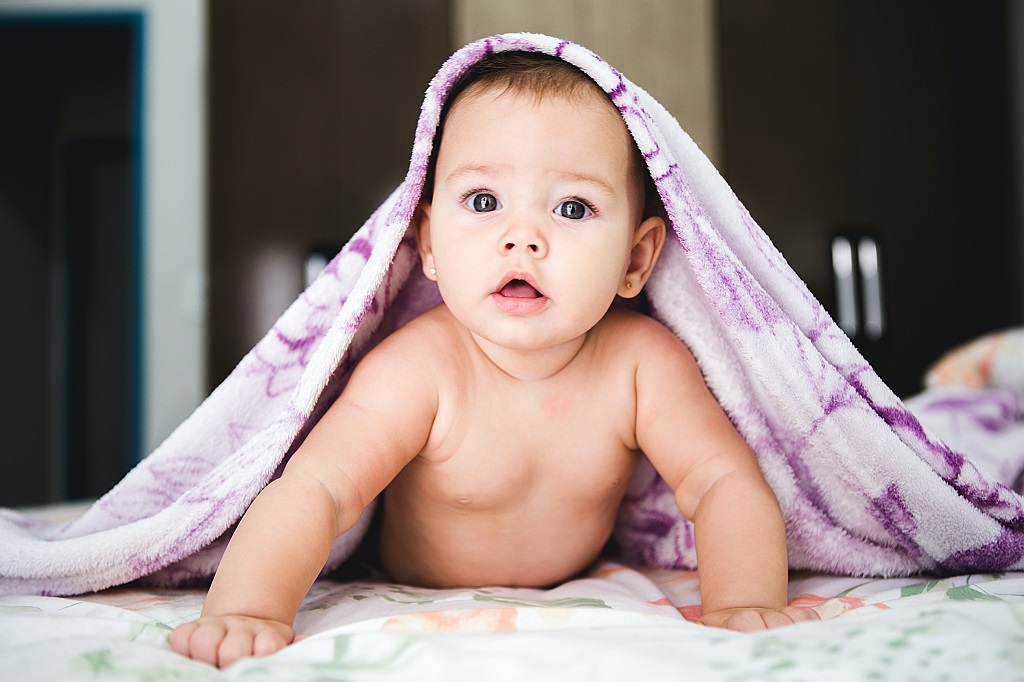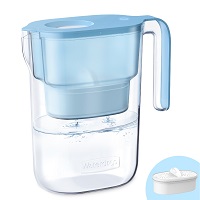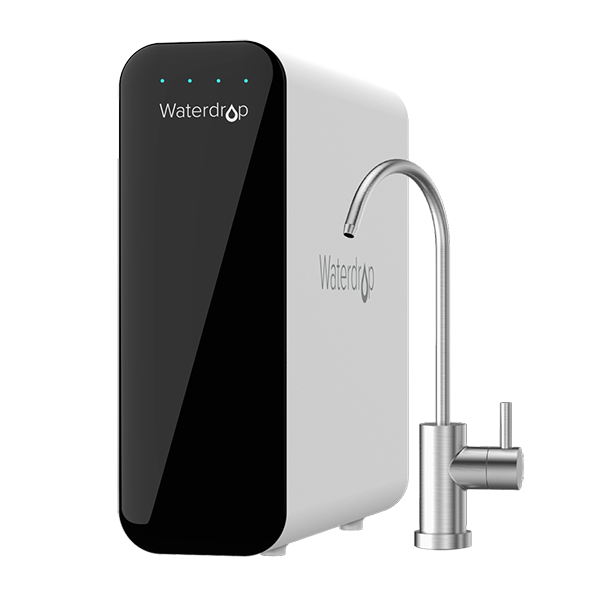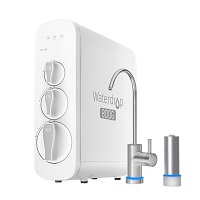For parents with newborns at home, you might find the following scenario very familiar: In the parks near home, it is very common to see parents taking their babies out for a walk. The parents will always carry a drinking cup or bottle for their babies (filled the bottle with water), and they will feed the baby once in a while. Some parents who see the scene would ask out of curiosity: Excuse me, what are you feeding the baby?
Do newborn babies really need water? What are the dangers of drinking too much water?
Can My Baby Drink Water
Newborn babies cannot drink water. After the baby starts to eat complementary food at six months, water can be fed, but the daily amount of water intake should be controlled between 30-60 ml.
When Should My Baby Drink Water
According to the World Health Organization (WHO) and the American Academy of Pediatrics (AAP), under normal circumstances, babies under 6 months do not need to drink water, and breast milk or formula milk is enough to provide the baby with the nutrients and water the body needs.
The WHO clearly states that breastfed babies do not need to drink any extra water. This is because the water content of breast milk is more than 80%; and formula-fed babies can also get enough water, so no additional water is needed. Even in the very hot summer months, breast milk and formula are fully hydrated to meet your baby's needs.
In addition, if the baby drinks too much water, it means that the intake of breast milk will be reduced, and the baby will not get enough milk, which will affect their physical development.
Why Should Baby Drink Water 6 Months
Though the function of the kidneys is present at birth, the function of excreting uremia at this time is about one-fourth of that of an adult. The baby does not need to drink extra water, but is afraid of drinking too much water and causing "water poisoning".
What Are the Side Effects of Baby Drinking too Much Water?
Water poisoning
There is a high risk of water intoxication when giving water to a newborn. Water intoxication occurs when the blood is diluted and the balance of electrolytes in it is disrupted. It is very dangerous for babies to suffer from water intoxication. In mild cases, they may experience dizziness, vomiting, and lack of energy in the whole body. In severe cases, they will experience convulsions, coma, and even endanger their health.
Loss in appetite
Giving newborns water can affect their appetite. The stomach of a newborn is very small. When he drinks water, his stomach will not be able to accommodate breast milk or formula milk. While nutrients absorbed by newborns are mainly obtained from breast milk and formula milk. Water will reduce the temperature of the baby as well as the ability to absorb nutrients from food, resulting in malnutrition in the baby.
Burden the kidney
Because the baby's kidney function is not yet fully developed, drinking too much water will burden the kidneys. When brewing formula milk for infants, please dilute the milk powder strictly according to the milk formula brewing table, do not add too much water. Adding too much water will not only reduce the nutritional value of the milk powder but also increase the burden of the baby's kidney decomposition
How Can I Know If My Baby Need Water
You can make the judgment by looking at your baby's lips, skin, and frequency of urination. If the baby's lips and skin are very dry, the mother should feed him water in moderation. Diapers have better water absorption, generally 4 hours to replace, if it is time to change, the diapers lift very lightly, indicating that the baby may be short of water. The color of normal urine is another good indicator as it should be transparent, if not, the mother should pay attention to adding water to the baby.
What Water Should Baby Drink
Newborns are vulnerable. There may be some impurities left in our tap water, which may not matter to adults but they can cause serious harm to babies. At this time, we can use help from water purifiers.
Water Filter Pitcher
If you are confident about the quality of tap water at home, you can simply choose a water filter pitcher to add an additional layer of protection for the babies.
The Waterdrop PT-05 water filter pitcher is the ideal choice for you. It is compact and easy to carry around. The pitcher has been tested against NSF 372 for product safety. As for filtration performance, it can effectively reduce arsenic, fluoride, lead, and other contaminants in water. The extended filter life brings you clean water for up to 200 gallons or three months, saving you cost and energy for filter replacement.
Ultrafiltration
If you want to provide safe water for your baby while protecting yourself and your loved ones, an ultrafiltration water system would be a great choice. The system is normally installed under the kitchen and brings out clean water directly from the faucet.
The Waterdrop Ultrafiltration Under Sink Water Filter System is one of the most popular ultrafiltration systems on the market. The 0.01-micron UF membrane of this ultrafiltration system decreases chlorine and effectively adsorbs lead, chloramine, fluoride, heavy metals, VOCs, and much more.
Compare to the water filter pitcher, the system performs with an extended service life of 24 months with an advanced filter design, which the frequency of filter replacements and saves on maintenance costs.
Compare to the water filter pitcher, the system performs with an extended service life of 24 months with an advanced filter design, which the frequency of filter replacements and saves on maintenance costs.
Reverse osmosis
Reverse osmosis is the ultimate option to purify your water. It is an advanced water purification technology originally developed by the U.S. Navy to produce drinking water from seawater for submarine crews. It is a membrane filtration technology that works by forcing water under pressure through the very tiny pores of a semipermeable membrane.
Modern reverse osmosis units for homes combine membrane technology with carbon and mechanical filtration to produce highly purified, great-tasting water. The filtration pore size of the RO membrane is 0.0001 microns, and the filtration performance is stronger than that of the ultrafiltration machine.
The Waterdrop G3 P800 is a tankless RO system with UV sterilizing light. The revolutionary tankless design saves much undersink space and brings more room for storage. The system not only adopts powerful 3-stage filters, but also a water scale inhibitor to prevent water scale from building up. The improved 7-layer of RO membranes reduce chlorine, heavy metals, and other contaminants present in water effectively.
The UV sterilizing light further improves water safety and eliminates the chances of getting secondary pollution. Waterdrop prepares you with a pressure bucket that you can easily connect with the refrigerator or the RO system and enjoy better filtration performance.
Conclusion
Water is the source of life. Drinking more water can bring great benefits to health, yet, it is also important to know how to drink water and how to feed your baby with water. I hope you would find this article helpful.






